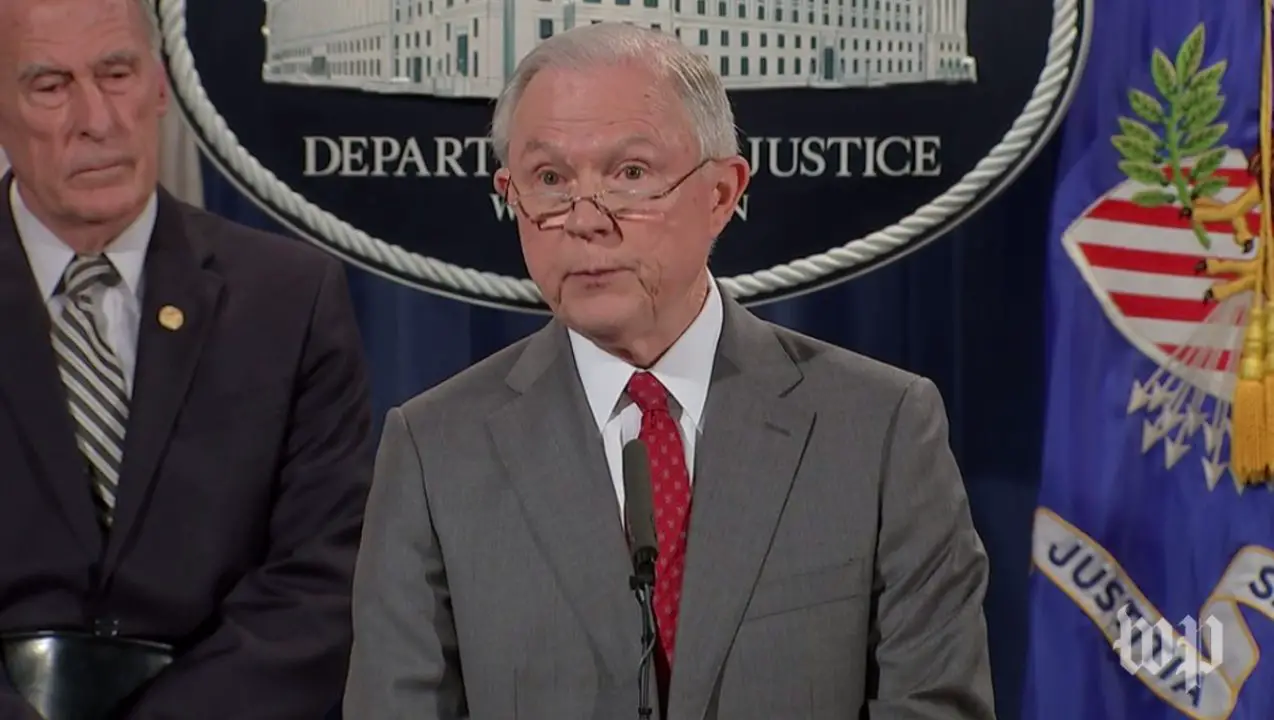In a press conference announcing new steps to crack down on federal government leaks, Attorney General Jeff Sessions said the department was “reviewing policies affecting media subpoenas,” saying reporters’ abilities to disclose information had to be weighed against national security concerns.
“I have listened to career investigators and prosecutors about how to most successfully investigate and prosecute these matters. At their suggestion, one of the things we are doing is reviewing policies affecting media subpoenas,” Sessions said at a press conference Friday morning.
“We respect the important role that the press plays and will give them respect, but it is not unlimited. They cannot place lives at risk with impunity. We must balance their role with protecting our national security and the lives of those who serve in our intelligence community, the armed forces, and all law abiding Americans.”
Director of National Intelligence Dan Coats said at the same press conference Friday morning that the torrent of classified leaks flooding out of the executive branch pose a clear threat to national security.
As reported by The Washington Post:
Sessions has come under harsh criticism from President Trump, who accuses him of (among other things) not doing enough to plug leaks. It’s ironic, then, that journalists’ top defender against subpoenas that would require them to reveal sources was once Vice President Pence, who as a congressman took an interest in Miller’s case and in 2007 proposed a federal shield law to protect journalists.
A quick review of the Miller episode:
A grand jury investigating whether the leak of Plame’s name violated a federal law against disclosing the identities of covert agents issued a subpoena demanding that Miller reveal her source. The probe sought to determine whether the leak was a retaliation against Plame’s husband, former diplomat Joseph C. Wilson IV, who had publicly criticized the George W. Bush administration’s justification for invading Iraq.
Miller was not in danger of prosecution. The landmark Pentagon Papers Supreme Court case established the right of reporters to publish classified information provided to them. But the person on the giving end of the leak was in legal jeopardy, and the grand jury wanted to know who that person was.

